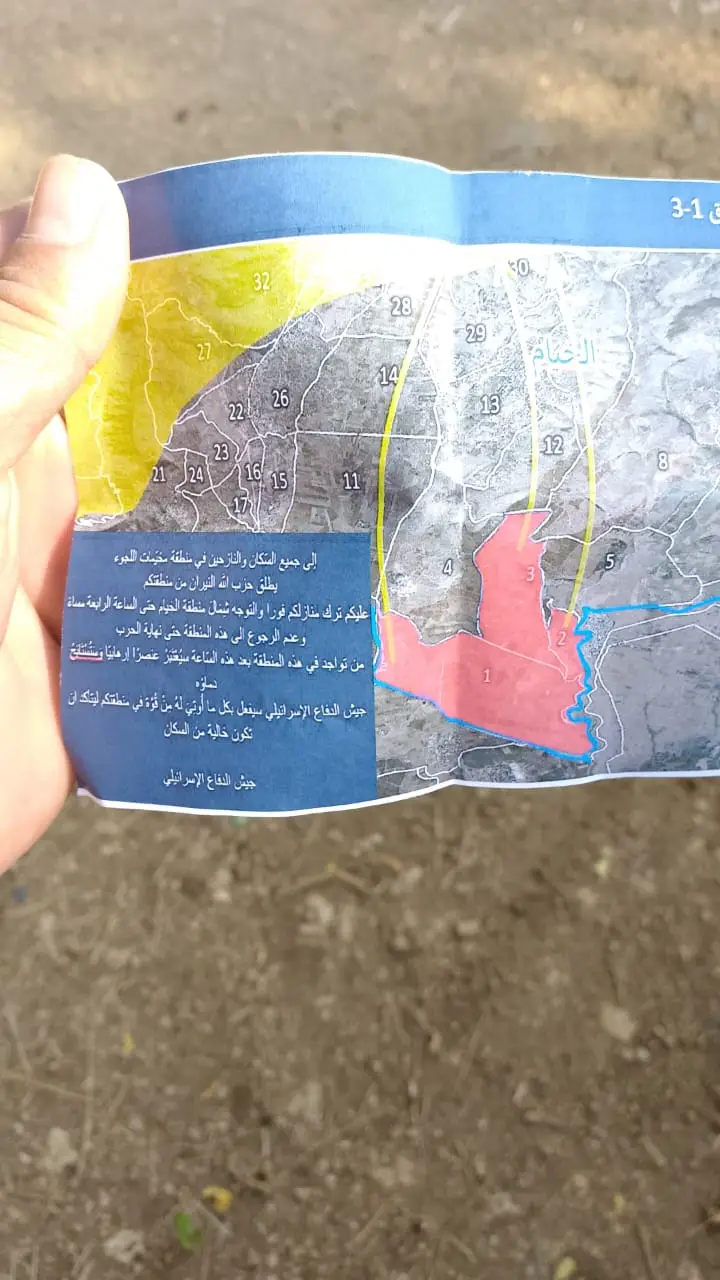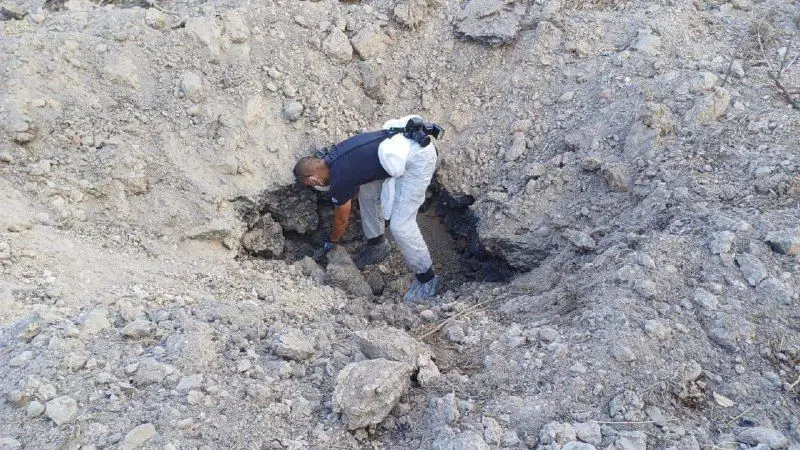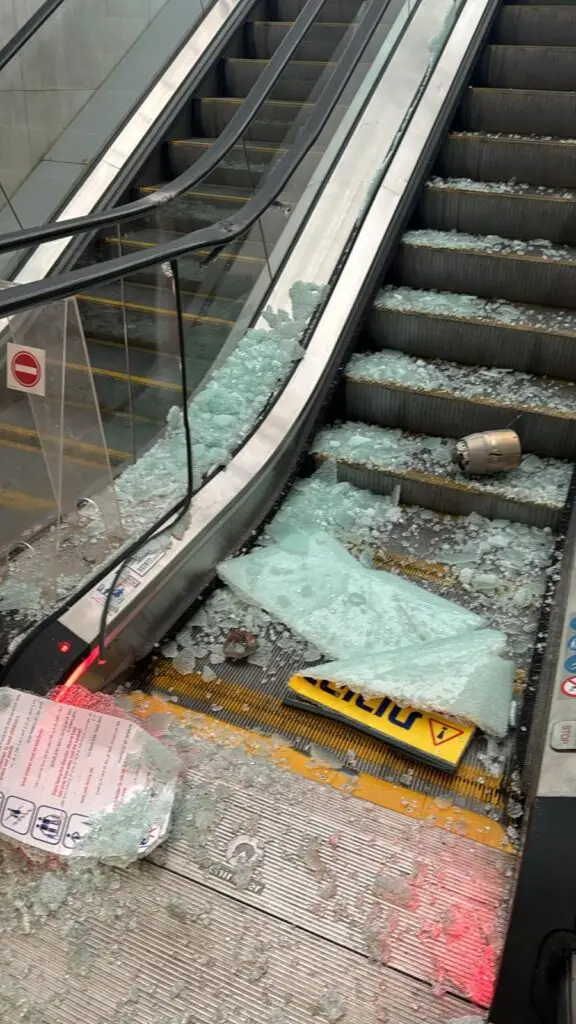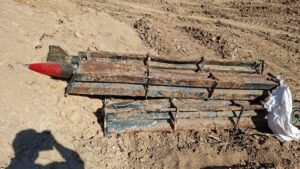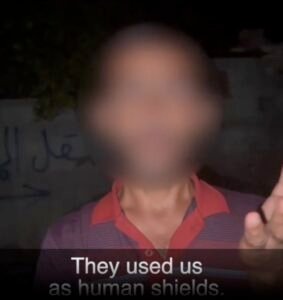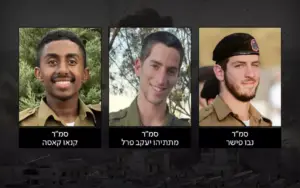Hostage Updates:
The IDF’s investigation has concluded that Sgt. Ron Sherman, Cpl. Nik Beizer, and civilian Elia Toledano, who were former hostages, were likely killed as a result of an Israeli airstrike in Gaza on November 10, 2023. The airstrike targeted Hamas commander Ahmed Ghandour in a tunnel complex where the hostages were unknowingly being held. While the exact cause of their deaths remains uncertain, the IDF believes they were killed by a “byproduct” of the strike. The bodies were found in the Jabaliya tunnel network in December and later brought back to Israel for burial.
Interior Minister Moshe Arbel (of the Shas party) confirmed that he held discussions on Thursday with Yesh Atid and the National Unity Party, aimed at forming a unity government under Netanyahu, with a primary focus on securing the return of the hostages. The unity government would last 6 months, and would give Netanyahu the coalition votes needed to bypass the Otzma Yehudit and Religious Zionist parties’ opposition to a potential hostage deal which releases hundreds of high-level terrorists from prison. It is unknown if these talks will make any progress, and how a unity government would hold up in the case of an extended Lebanon war.
The Qatari channel “Al-Arabi” reported this evening that US Secretary of State Anthony Blinken will soon visit the Middle East, with the aim of starting the negotiations for a hostage deal and a ceasefire in Gaza. According to the channel’s sources, Blinken will meet with Egyptian President al-Sisi to make new proposals for resuming negotiations. He will discuss, among other things, proposals to bridge the gap between Israel and Egypt on the issues of the Philadelphia Corridor and the Rafah crossing. It was also reported that Blinken will discuss US guarantees for the implementation of all phases of the ceasefire agreement and the hostage deal.
Egypt, although officially a negotiations mediator, is also making its own demands against Israel’s interests, in an effort to maintain control of the Philadelphi Corridor and Rafah crossing, together with Hamas.
Shortly after midnight, Osama Hamdan, one of the senior leaders of Hamas, who is living abroad, announced: “Yahia Sinwar will soon send a public message to the Palestinian people and the world.”
Gaza Front Updates:
Hamas did not fire any rockets into Israel today.
Thank G-d, the IDF did not announce any fallen heroes.
Three divisions of IDF troops are currently operating in Gaza: the 252nd Division along the Netzarim Corridor, and pinpoint operations in Central Gaza and Gaza City; the 162nd Division in Rafah and along the Philadelphi Corridor; and the Gaza Division in the buffer zone.
An IDF airstrike targeted a group of Hamas terrorists who were gathered in a command room inside the Ghazi Al-Shawa School in Beit Hanoun. The IDF says that the terrorists were using the school in recent weeks to hide and prepare rocket launches to Israel.
As usually, the school was being used as a humanitarian shelter, and Hamas was using the people as human shields. The IDF took great caution, and used a precision strike, so as to avoid harm to civilians.
—> In response to questions: I did not report the earlier announcement that the IDF found all tunnels under the Philadelphi Corridor to be blocked at the Egyptian end, and not in use, because this information does not align with the reports from my sources in Rafah. I will update when the information is clarified.
Northern Front Updates:
Hezbollah rocket and drone fire from Lebanon into Israel’s far north continued today, at an escalated rate over the previous month. Today’s largest barrage included 40 rockets at once. One attack drone crashed into the town of Metula without any warning siren. Several IDF soldiers were very lightly wounded in the northern Golan Heights. A few fires broke out as a result of Hezbollah drones and rockets, two firefighting teams worked together to extinguish a larger fire in the Raviya area.
The IDF carried out heavy airstrikes against Hezbollah targets in Southern Lebanon, including a string of 20 airstrikes in Rachaya al-Foukhar, in which some of the strikes followed with secondary explosions from stored munitions and primed rocket launchers.
Lebanese media reported that the IDF dropped flyers over the southern Lebanon border village of Wazzani, calling on civilians to evacuate before 4 p.m., due to Hezbollah activity in the area. The IDF later announced that there is no evacuation warning, and that an IDF unit dropped the leaflets without approval. Military sources indicate that the move came from the commander of the 769th Hiram Regional Brigade, Col. Avi Marciano, who acted without final approval from senior officers. The leaflets were dropped from a small drone belonging to the unit.
This move may be seen as a symptom of the growing impatience from the lower command, who have been on ground and under fire for nearly a year, without the ability to lead their troops in a response. The flyers were likely made as part of the wider planning, in which every unit already has a detailed plan and instructions for a ground invasion in Lebanon, which have been rehearsed endlessly. Reports in Lebanon indicate that many civilians in Wazzani followed the warning, and left the village.
This evening, PM Netanyahu spoke with the mayor of Safed, Yossi Kakun: “The current situation will not continue. We will do everything necessary to restore normalcy and remove the threat from the residents of the north, including the city of Safed.”
Judea and Samaria Updates:
A terrorist with a “sharp object” attempted to stab a Border Police officer at the Damascus Gate entrance to Jerusalem’s Old City. The officer was lightly injured. The terrorist attempted to flee, but was shot by other Border Police officers.
Houthi & Iraqi War Front Updates:
Around two million Israelis in Central Israel cities were awoken at 6:32 a.m. by a siren, warning of an incoming ballistic missile from Yemen.
Israeli air defenses detected the missile upon launch from Yemen at 6:21 a.m., and made multiple attempts to intercept it, until finally one Arrow missile hit it, but did not intercept it completely. Instead, the missile broke apart in the air, and the warhead and other pieces fell to the ground. Miraculously, the heaviest shrapnel did not fall into the populated areas which the missile was targeting, and instead fell in the Ben Shemen forest, where it made a small crater, and sparked a fire. Smaller shrapnel hit a train station near Modiin, causing minor damage.
No injuries were caused by the shrapnel, but five people were injured while running to shelter, four were brought to the hospital.
Contrary to Houthi claims, the surface-to-surface ballistic missile, which traveled some 2,040km, was not hypersonic, and had a straight trajectory. No changes were made to Home Front Command directives, as the IDF doesn’t expect heavy fire to come from the Houthis at this time.
In response to the missile, PM Netanyahu said: “The Houthis should have known by now that we are charging a heavy price for any attempt to harm us. Anyone who needs a reminder is welcome to visit the port of Hodeida.”
It appears that the price does not concern the Houthis. According to reports from i24NEWS and the Russian Sputnik news agency, Houthi fighters have arrived in Syria, where they plan to open a new firing spot from which to target Israel with drone and missile attacks.
International Updates:
The German newspaper, Bild, reported that the German government is carrying out a “silent arms embargo” against Israel, while freely selling to Qatar. According to the report, Israel has made several requests to purchase ammunition for tanks over the last year, specifically for the modern RCH 155 mobile cannons, for which the main advantage of this system is its ability to shoot accurately while moving. Germany denied the request every time, however approved arms sales to Qatar worth a little over 100 million euros in the first half of 2024. Qatar is hosting the heads of Hamas, and is known as a state sponsor of terrorism.
General Updates:
The IDF has begun digging a large ditch, to make a canal along the southern border with Jordan, starting in the Eilot area. Israel shares hundreds of kilometers of border with Jordan, stretching from just south of the Kineret (Sea of Galilee), through Judea and Samaria, and then along the south up until Eilat. Since the 1967 agreement, Jordan has refused to allow Israel to build a fence along the part of the border in Judea and Samaria, and has been difficult about the other part, for which the Israeli government continuously failed to budget for. However, a significant amount of weapons and ammunition, as well as illegal drugs, are continuously smuggled over the border.
Since October 7th, residents of Eilot, near Eilat in Southern Israel, have been concerned about a possible terrorist infiltration from Jordan in parts of the border near the small town where there is nothing but vast mountainous desert, and which has become a smuggling hot spot. In an out-of-the-box solution, the IDF has begun digging a long ditch along the border, which will prevent cars from being able to drive across the border. The IDF admits that it is not a complete solution, but is something that can be done for now.
